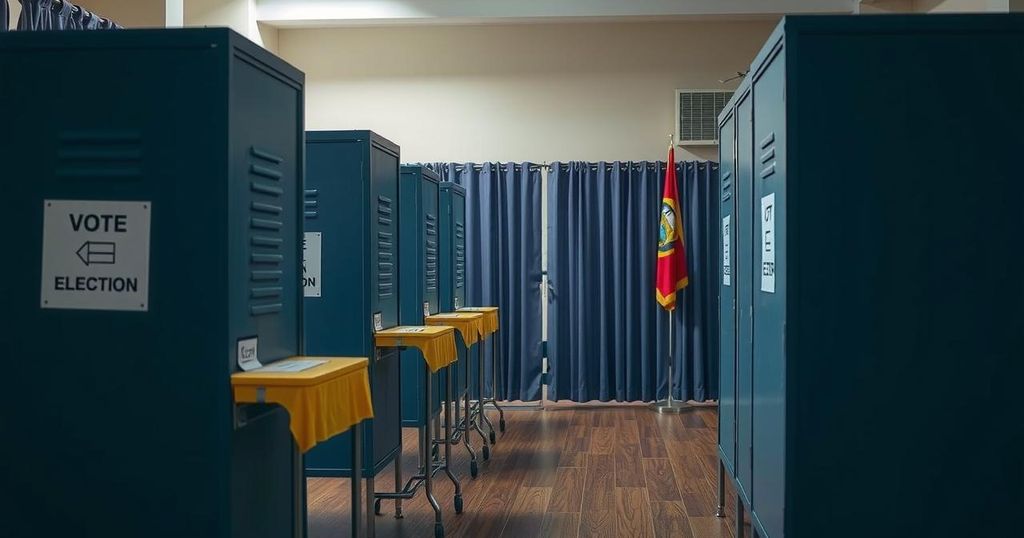Mauritius Parliamentary Election: Cost of Living Crisis at Forefront
Mauritius holds its parliamentary election today, with one million voters electing 62 National Assembly members. The election is clouded by a wire-tapping scandal, while the cost of living crisis dominates the agenda. Prime Minister Jugnauth and opposition leader Ramgoolam present contrasting plans to address economic concerns, amidst heightened electoral tension and international observation.
Mauritius has commenced its parliamentary election today as approximately one million voters cast their ballots to select 62 members to the National Assembly. The election is notably overshadowed by a wire-tapping scandal and the pressing issue of a standard of living crisis, which is foremost in the minds of the electorate. Polling stations opened at 7 AM local time and will close at 6 PM, with results anticipated on the following day, Monday. This parliamentary election represents the twelfth since Mauritius gained independence from the United Kingdom in 1968. The current Prime Minister Pravind Kumar Jugnauth, representing the Militant Socialist Movement party, is embarking on this election on the heels of a historic agreement that granted Mauritius sovereignty over the Chagos Islands, a territory long disputed with the United Kingdom. Despite the anticipation of economic growth, many citizens have expressed dissatisfaction with their living conditions, making the cost of living crisis a critical campaign issue. The various parties contend that they have suitable plans to address these challenges. Prime Minister Jugnauth’s coalition has made pledges to raise minimum wages, increase pensions, and lower value-added tax rates on essential goods, utilizing funds from the recent UK agreement. Conversely, the opposition, led by Navin Ramgoolam’s Alliance of Change coalition, has also vowed to implement initiatives such as free transport and internet services while proposing to reduce fuel prices. The election environment has been fraught with tension following the scandal, leading to the temporary imposition of a social media ban, which was rapidly rescinded due to public pushback. The Electoral Commissioner, Irfan Rahman, has indicated that police are stationed at polling locations to ensure security amidst rising concerns regarding electoral fraud. The African Union has dispatched a 30-member observer mission to monitor the proceedings in this renowned stable democracy in Africa, where the political landscape is tightly contested as candidates strive to assure the electorate of their capability to improve economic conditions.
The parliamentary election in Mauritius is a significant political event, highlighting the critical intersection of governance and economic well-being in an emerging economy. With about 1.3 million residents, Mauritius is noted for its vibrant offshore financial services, tourism, and textiles industries. The economic outlook remains optimistic; however, the disparity in perceived benefits of growth among the population is pivotal in shaping the election discourse. Recent allegations of political misconduct, including secret wiretaps, have heightened concerns regarding the integrity of the electoral process within this historically stable democracy.
In summary, the parliamentary election in Mauritius is primarily focused on resolving the ongoing cost of living crisis, which affects a broad swath of the population. While the ruling party aims to bolster its position through promises of economic improvement, the opposition counters with its own proposals aimed at alleviating financial burdens on the citizens. The election’s credibility is further scrutinized amid ongoing controversies, with international observers present to assess the integrity of the process.
Original Source: www.aljazeera.com




Post Comment